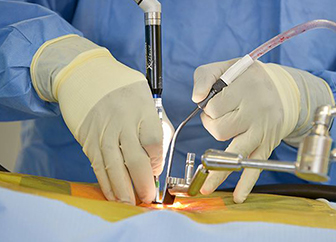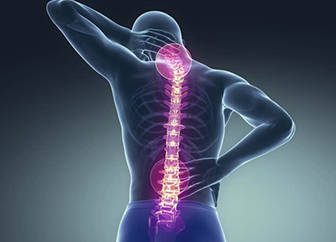Overview
Spine surgery is a medical procedure used to fix problems with the spine, which is the part of the body that supports the back and neck. Spine surgery treatment is often needed when other methods like medicine or exercise don’t work. This surgery can help relieve pain, correct spinal problems, and make it easier to move. New techniques in spine surgery allow doctors to perform these procedures with smaller cuts, leading to quicker recovery and fewer risks.
Our Expertise
At SPARSH Hospital, we have set up a world-class facility emphasising all aspects of spinal treatment, including:
- Physiotherapy
- Ergonomics
- Lifestyle Awareness
- Surgical interventions
Our spine specialists are highly trained in treating spine-related disorders and are experts in determining the need for medical and surgical interventions.
Spine Conditions We Treat
Our department specialises in treating a wide range of spine conditions, including:
- Degenerative Spine Disorders
- Spinal Deformities (Scoliosis, Kyphosis)
- Tumours in the Spine
- Spine Infections
- Spine Fractures or Trauma
Treatment Options
We offer a comprehensive range of treatment options tailored to each patient’s specific needs:
Non-Surgical Treatments
- Physiotherapy
- Pain management
- Lifestyle modifications
Surgical Interventions
- Minimally invasive spine surgery
- Spinal fusion
- Deformity correction
- Tumour removal
Our approach emphasises minimally invasive techniques whenever possible, which can lead to faster recovery times and reduced complications.
Advanced Technology
We utilise state-of-the-art technology and equipment to ensure accurate diagnosis and effective treatment. Our commitment to staying at the forefront of spine care means that our patients benefit from the latest advancements in spine surgery techniques.
Why Choose SPARSH Hospital for Spine Surgery?
Our dedicated team of spine specialists is committed to providing world-class spine surgery treatment and care for patients with a wide range of spine-related conditions. With a focus on patient-centred treatment and cutting-edge technology, we strive to improve the quality of life for individuals suffering from spine disorders. Our dedication towards treatment and care makes us one of the best spine hospitals in Bangalore.
- Experienced team of spine specialists
- Comprehensive care from diagnosis to rehabilitation
- State-of-the-art facilities and technology
- Minimally invasive surgical techniques
- Personalised treatment plans
- Excellent patient outcomes
An Innovative Approach to Treatment

Minimally Invasive and Microscopic Surgery

Spinal Deformity and Tumor Resection under State-of-the-art Neuromonitoring Systems
We Specialise in the Treatment of
- Degenerative Spine
- Spinal Deformities (Scoliosis, Kyphosis, etc.)
- Tumors in the Spine
- Spine Infections
- Spine Fractures or Trauma



